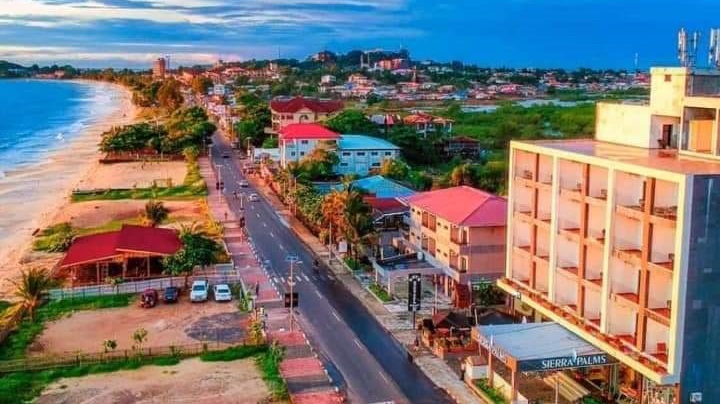A new report titled “Hot, Cities, Chilled Economies: impacts of Extreme Heat Now Costs Freetown SLL 315 Billion in Economic Losses, The study was done by the Arsht-Rockefeller Foundation Resilience Center in partnership with vivid Economics.
The report is “detailing the social and economic effects of climate-driven extreme heat through the prism of 12 cities, spanning six continents, covering an urban population of more than 123 million.”
The study “revealed that Freetown’s heat and humidity-related labour productivity losses are already substantial.” The authors warned that “without action to reduce emissions or adapt to rising temperatures, year-round temperature increases are set to push these impacts to losses of over 6 per cent of output by 2050, or SLL 1.6 trillion.”
“Climate-driven heat is changing the way we live and work, yet current awareness of this silent and invisible threat is dangerously insufficient.
Heat’s disproportionate impact on cities compelled us to quantify and explore the economic and social ramifications of our burning planet,” said Kathy Baughman McLeod, SVP and Director of the Adrienne Arsht-Rockefeller Foundation Resilience
Center at the Atlantic Council.
What is more worrying is that Freetown has “the second-largest share of output losses out of all the cities in our study.” “Overall, in a typical year around 2020, heat- and humidity-related productivity reductions may cause losses of as much as 3.5 per cent of output, or SLL 315 billion. Some of the key findings include
“Freetown is highly vulnerable to extreme heat: more than 90 per cent of working hours are in non-climate-controlled conditions. The impacts of these losses will bear most heavily on the poor, including the 60 percent of the population who live in informal settlements.”
Also that “By 2050, roughly 4 months every year will be as warm as the hottest ten days currently.”
Another key finding was that “Rapid population growth has left Freetown with low levels of green cover and many bare, paved, or otherwise heat-intensifying surfaces, Particularly around informal settlement such as Kroo Bay.


 Post a comment
Post a comment










Comment(s)
Disclaimer: Comments expressed here do not reflect the opinions of Sierraloaded or any employee thereof.
Be the first to comment